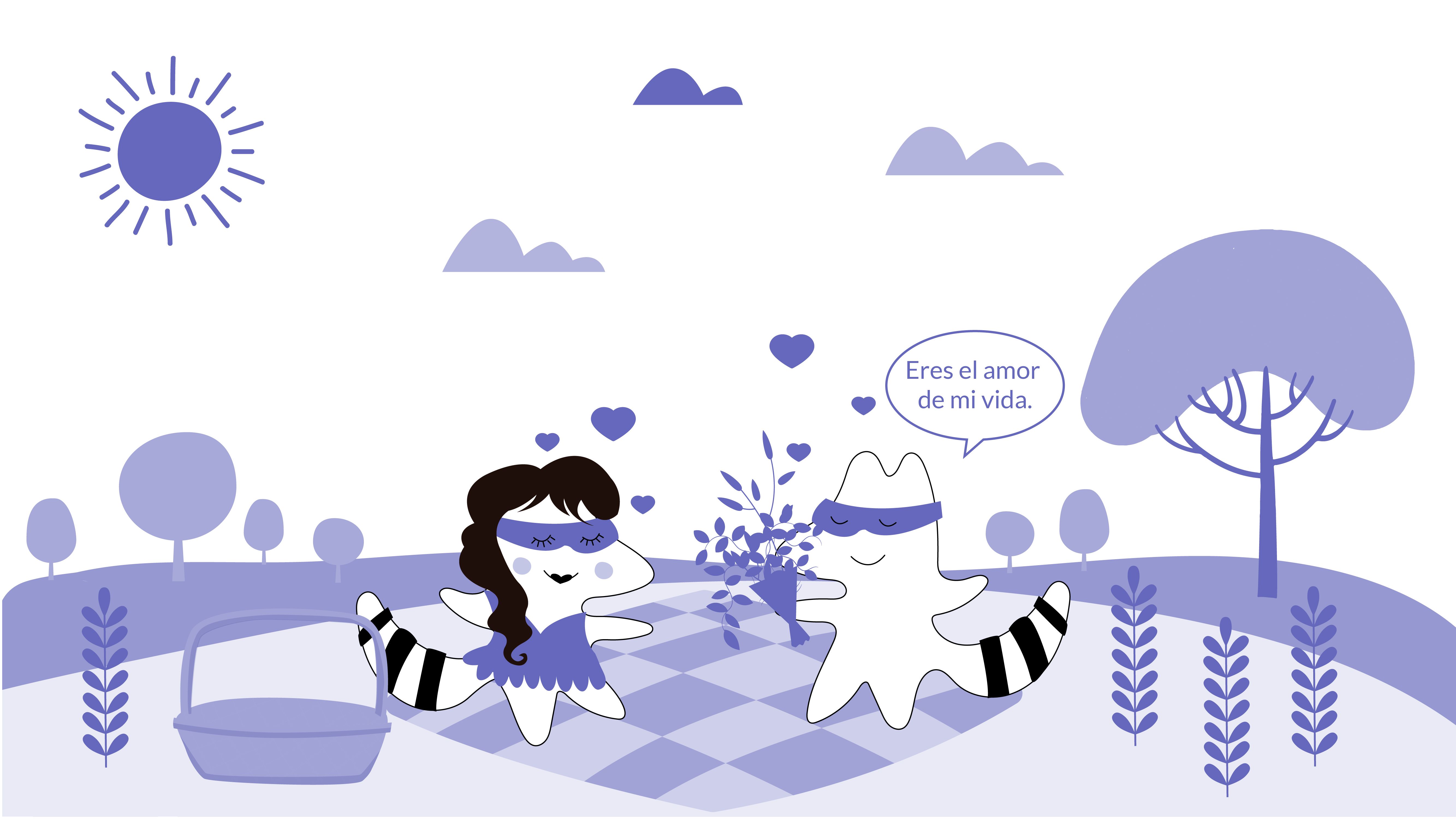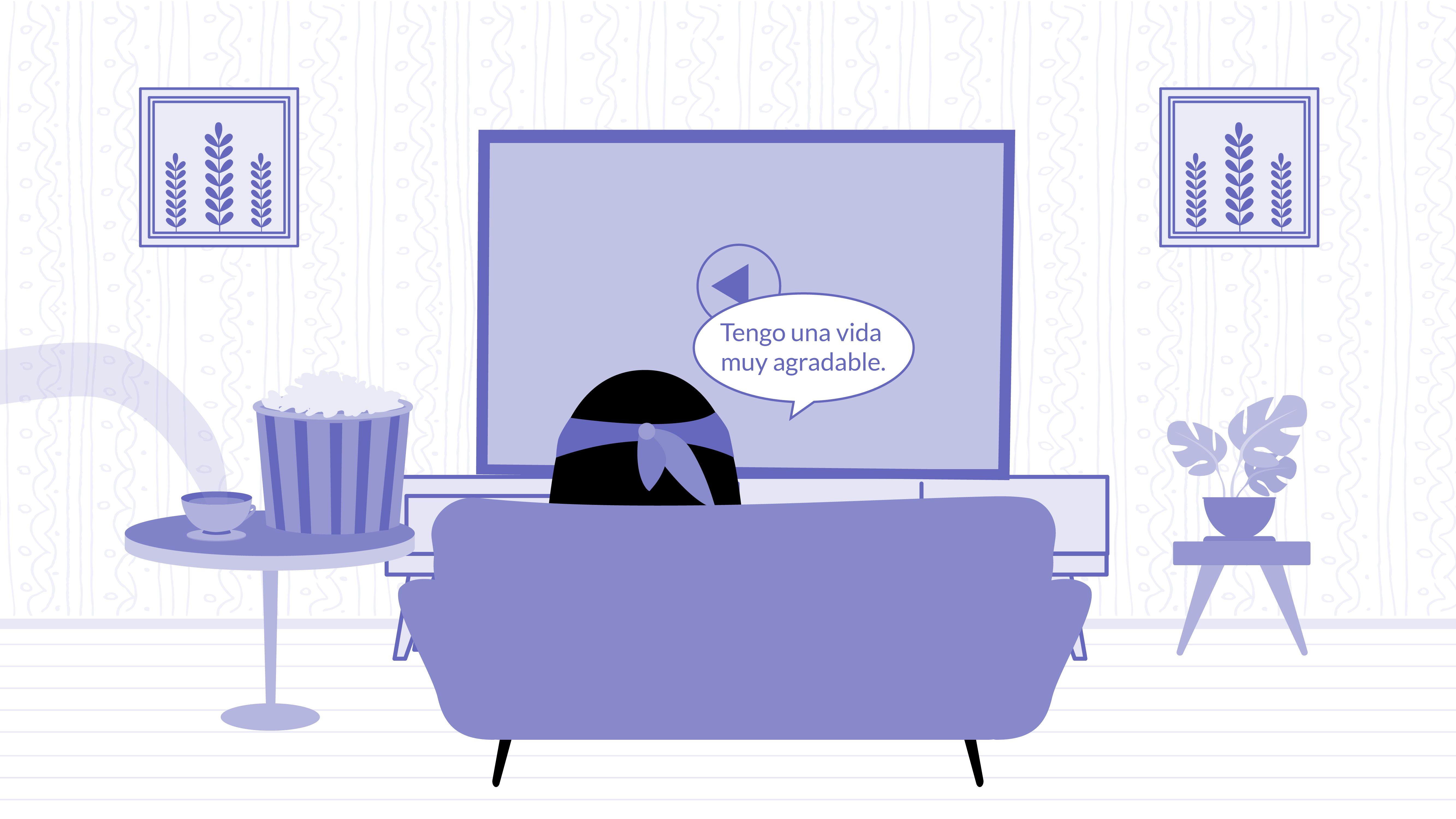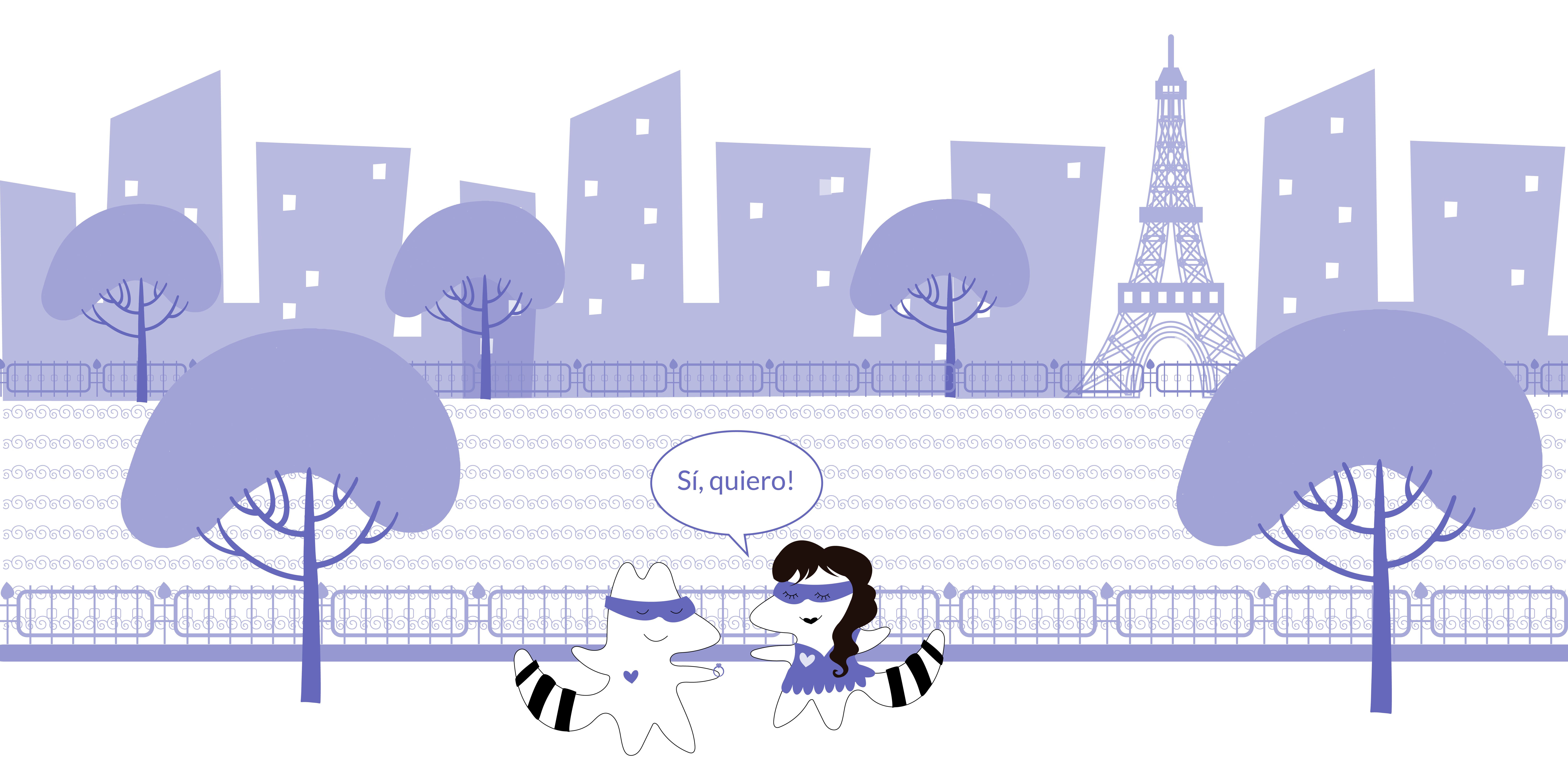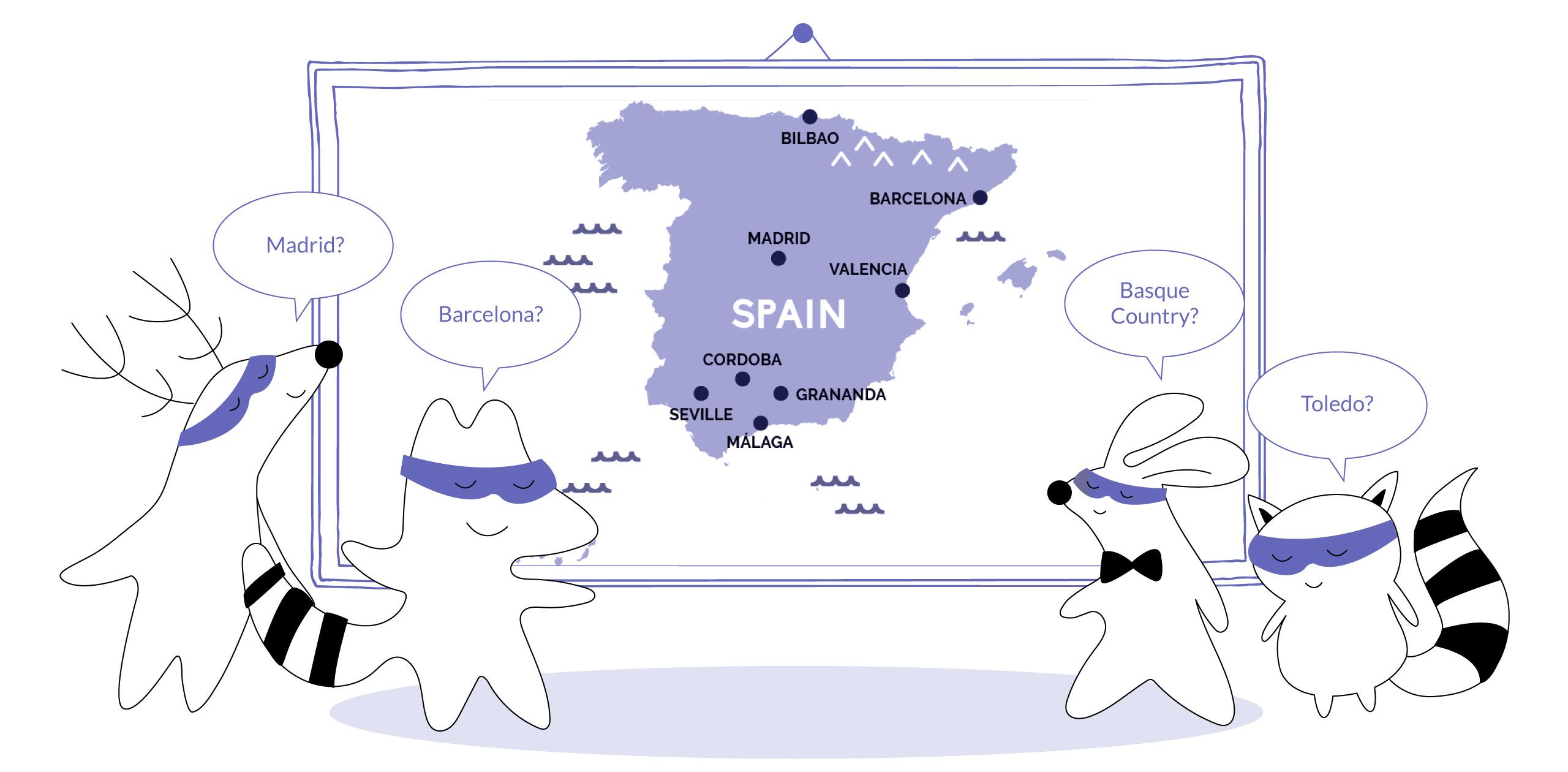
Language is a window into a culture, and Spanish is no exception. Spoken by more than 500 million people globally, it’s one of the most popular languages worldwide, so being fluent is a big asset.
From expressions of joy to expressions of sorrow, Spanish has a rich vocabulary that captures the nuances of life. In this article, we will explore some of the best expressions to talk about "la vida" in Spanish. Let’s go!
Learn Spanish with Langster
Así Es la Vida
"Así es la vida" in Spanish means "that's life" or "such is life" in English. It is used to express resignation or acceptance of a problematic or unfortunate situation, acknowledging that life can be unpredictable and challenging.
Spanish
English
Perdí mi trabajo y ahora no sé cómo pagaré el alquiler del mes que viene.
I lost my job and now I don't know how I'll pay next month's rent.
Lo siento mucho. Así es la vida, a veces pasan cosas que no podemos controlar.
I'm so sorry. That's life, sometimes things happen that we can't control.
Perder la Vida
"Perder la vida" is a Spanish phrase that literally translates to "lose one's life." It is often used to refer to the act of dying, particularly in tragic or fatal situations.
Spanish
English
Perdió la vida en un accidente.
He lost his life in an accident.
This phrase can be used in news reports or conversations about accidents, natural disasters, or violent incidents resulting in death. In everyday conversation, it's more common to use other phrases such as fallecer or morir to refer to the act of dying in a less dramatic or emotional way.
El Amor de la Vida
"El amor de la/mi vida" is the equivalent of "the love of my life." If you want to be romantic, you can use this term of endearment to refer to your beloved romantic partner in life.
Spanish
English
Eres el amor de mi vida.
You are the love of my life.
Be careful when using this expression with someone you love, as it indicates that you hold a deep and profound love for that person and consider them to be an integral part of your life and happiness. It can come across as intense or overwhelming if used inappropriately.

La Vida Es Muy Dura
"La vida es muy dura" translates to "life is very hard" and is typically used to refer to financial struggles, health problems, or personal issues. While it can be used to express empathy or solidarity with someone going through a difficult time, it can also come across as dismissive or discouraging if used inappropriately.
Spanish
English
No pude pagar la renta. Ya no tengo dinero.
I couldn't pay rent. I don't have any money.
Lo sé, la vida es muy dura. Lo siento.
I know, life is very hard. I'm sorry.
It's important to be mindful of the tone and context when using this phrase, and to use it with care and sensitivity.
In some situations, it may be more appropriate to use alternative phrases that convey a similar message but in a more positive or encouraging way, such as:
Spanish
English
En mi vida tiene vi altibajos, pero podemos superarlos.
Life has its ups and downs, but we can overcome them.
The opposite of this phrase would be "es una vida agradable" (it’s a nice life).
La Vida Sigue
Similarly, "La vida sigue" (life goes on) expresses that even though something difficult or challenging has happened, you must continue living and moving forward.
Here's an example of how to use it:
Spanish
English
Después de la muerte de mi abuelo, fue difícil seguir adelante, pero al final entendimos que la vida sigue.
After my grandfather's death, it was difficult to move on, but in the end, we understood that life goes on.
In this example, the speaker is expressing how difficult it was to cope with the loss of their grandfather. However, they eventually accepted that life goes on, and they have to keep living despite their grief.

Jugarse la Vida
"Jugarse la vida" literally means "to play with one's life,," so you would use this expression to talk about dangerous situations that could result in harm or even death.
When someone "se juega la vida," it indicates that they are engaging in a high-risk activity or undertaking a dangerous mission, such as in extreme sports, emergency response situations, or military operations.
This phrase is often used in news reports, discussions about risky behavior, or conversations about heroic acts in dangerous situations.
Tener Vida Propia
"Tener vida propia" (to have your own life) is often used to describe a person who is independent, self-sufficient, and has their own interests, goals, and priorities.
A person that has "vida propia" lives their life on their own terms and pursues their own dreams and aspirations, rather than simply following the expectations or desires of others. The opposite is also used to indicate someone lives through another person, for example:
Spanish
English
Mi mamá no tiene vida propia, siempre se mete en la mía.
My mom does not have her own life, she is always messing with mine.
Partir de Esta Vida
"Partir de esta vida" is another Spanish phrase to talk about death: it translates as "to depart from this life" or "to pass away."
It's important to understand the serious and solemn connotations of this phrase. When someone "parte de esta vida," it indicates that they have passed away and moved on from the physical world. It is a way to express respect for the deceased and to acknowledge their passing.
Dar la Vida
The phrase "dar la vida" has different meanings, the most important of them being "to be a parent."
Spanish
English
Mi madre me dio la vida, sacrificándose por mí y por mis hermanos en todo momento.
My mother always gave me my life, sacrificing herself for me and my siblings at all times.
Other Examples

Here are a couple of more examples of phrases about life in Spanish, such as the good life (la vida es buena) or the famous Living la Vida Loca by Ricky Martin.
Spanish
English
Salvar la vida.
To save one's life.
Arriesgar la vida.
To risk one's life.
El ciclo de la vida.
The life cycle.
Comenzar una vida nueva.
To start a new life.
Prueba de vida.
Proof of life.
Empezar la vida como adulto.
To start life as an adult.
Lo mejor de su vida.
The best of his life.
La vida santa.
A holy life.
The Bottom Line

In conclusion, "la vida" is a topic that is central to Spanish culture and language. From birth to death, from joys to sorrows, Spanish has a rich vocabulary that captures the many facets of life.
As a language learner, these expressions will help you better understand and communicate about the ups and downs of life. And, if you want to learn even more useful phrases in this foreign language, we recommend using a language app like Langster to improve your Spanish skills. Soon, you'll be using Spanish phrases and expressions like a native speaker!









